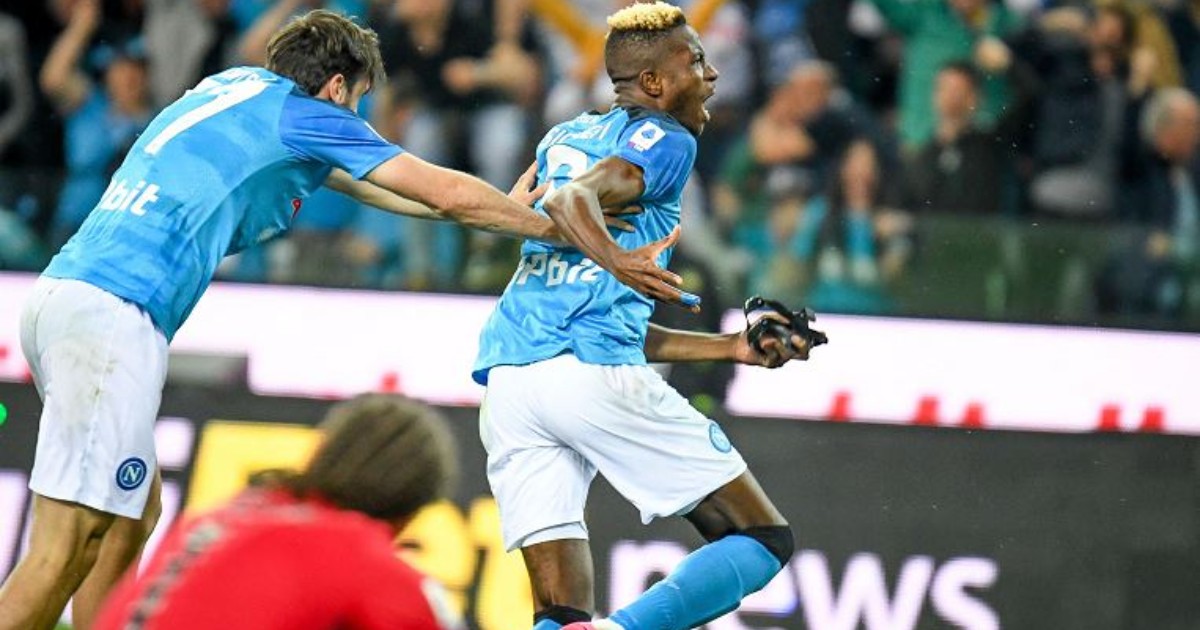I stopped for twenty four hours, drained, exhausted, the same feeling you get after passing a difficult exam at the university. Draining the adrenaline accumulated over many years, I wanted to avoid making reflections which, although justified, were the only ones sought by the media: the emotions of a city and a people perhaps seasoned with some cliché, when not characterized by a lack of insight.
Mine and our emotions, those of the Neapolitans, they cannot be explained. They just lived.
After a night of celebrations, in a sort of rewind of the film of these eighteen years of presidency of De Laurentiis, I rather dwelt on the reasons for the success of this business model. And I asked myself: “if I had to choose just one of the many motivations analyzed in my latest book At school at De Laurentiis (Ultra Edizioni), which one would you focus on?”.
No doubt: the ability to learn from mistakes. An entrepreneurship lesson for a business case to be studied in management schools.
Aurelio De Laurentiis knows the effects of “Swiss cheese model” by James Reason. Although accused of stubbornness, arrogance and narcissism, he is aware of the fact that the responsibility for human “errors” in a company is always systemic: his “errors” and those of his collaborators (human errors due to incompetence or inexperience) have their matrix in corporate management policies. The corporate error, in fact, does not originate from human nature, but is linked to systemic factors that recur in the workplace and in the organizational processes in which they emerge. The countermeasure to adopt is therefore to change the conditions in which human beings work.
An example? It is an objective fact: the players of Napoli, above all those of the historical nucleus of Benítez-Sarri-Ancelotti-Gattuso (Koulibaly, Mertens, Insigne, etc.), the “fantastic losers” of Napoli, seemed to suffer from nikephobia, the fear of WIN.
In tennis jargon it is called “little arm”, that sensation that assails the player of having a soft arm when he has to place the winning shot in front of the champion he is prevailing over. It is obvious that it is a phobia which does not only concern sportsmen, but also managers and entrepreneurs, students and anyone who sets himself an ambitious goal to achieve or is facing a challenge. Even those who have an important date can experience this fear. Victory, in fact, means in a broad sense the achievement of a goal.
As far as sports specifically are concerned, the Nikephobia it is a phenomenon whereby an athlete (of any environment and sporting level), even if endowed with great potential, never reaches high levels of performance due to behaviors that take on the appearance of a real “self-sabotage”. Specific studies in this regard have identified in a percentage ranging from 20 to 30% the number of athletes who suffer from it in a more or less evident way.
Napoli, for about ten years, had shown that they were looking for them with the lantern.
An overall management error, this of the Napoli company but with a prevailing responsibility: whoever managed the selection of personnel in the Napoli team on the occasion of the purchase-sales campaigns, who, aware of the errors made in the overall assessment of the players’ psychological potential, set up the last transfer market looking more at the head than at the feet of the new arrivals, in search of that leadership on the pitch which was perhaps also suffocated by the presence of “toxic leaders”.
Leadership is indispensable, on corporate boards as well as in football team locker rooms, in politics and in newspaper editorial offices. We also find a leader among pensioners playing cards at the village club. Leadership is the ability to make a group of people achieve certain goals. It is a competence/ability aimed at influencing people to voluntarily commit themselves to common goals. There is someone who is listened to more than others, a point of reference for better or for worse.
In other words, Napoli is a club which, I have been repeating for years, has now adapted to the changes and winning models, taking advantage of even the mistakes. The skills most required of Napoli collaborators are flexibility and the ability, the maximum expression of human intelligence, to recognize mistakes, considered an opportunity to improve.
The point on which we worked remains the fast failure (make a mistake quickly): the acceptance that the project can presuppose, also, the failure. And that we must proceed anyway. Like when the winds change on a sailing boat and you have to change the course knowing that it will take a little more time to reach your destination, but that it remains unchanged.
